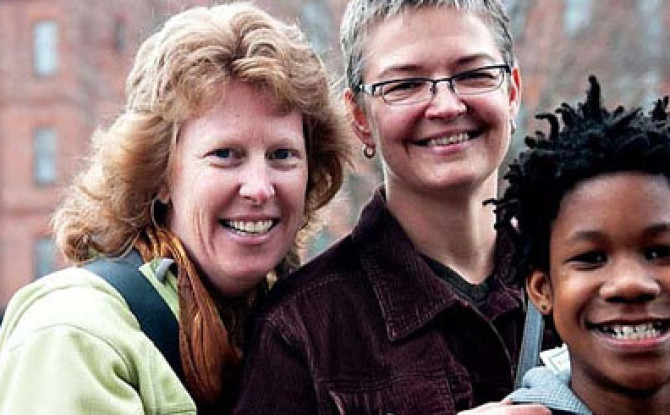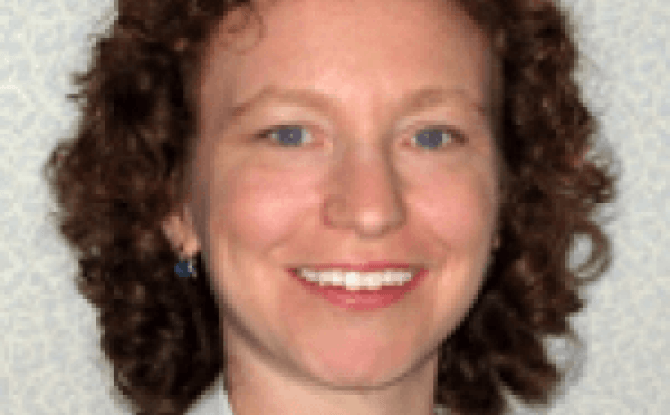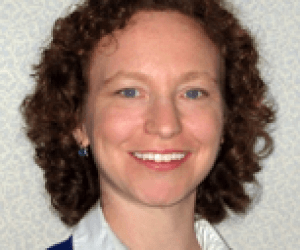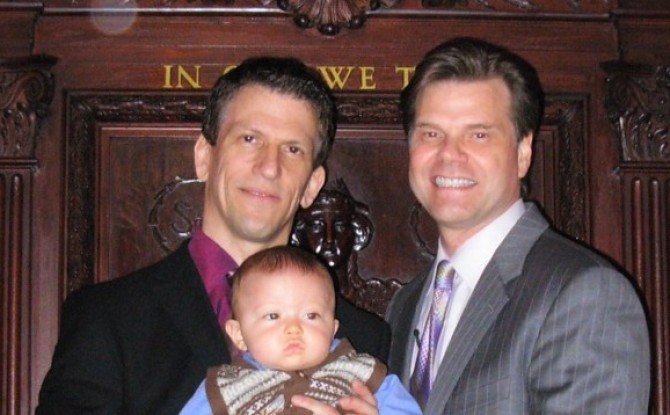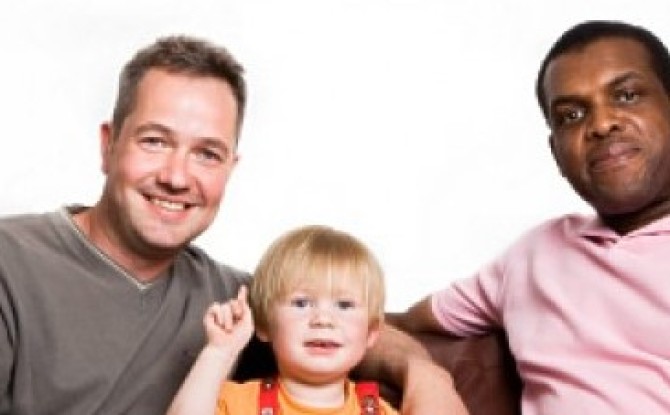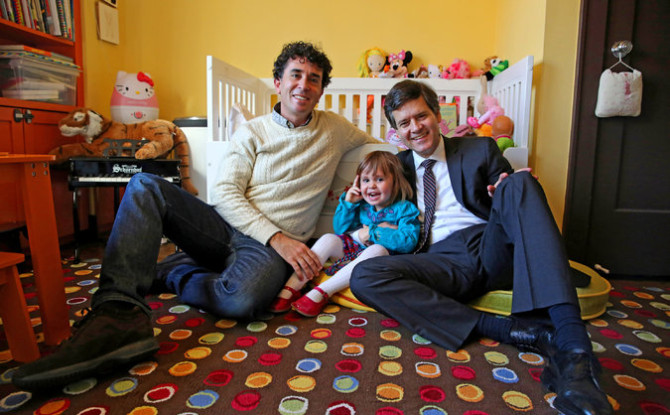Gay Parents Just Don’t Want To Hear This . . .
Even though my partner and I had met in a Chelsea bar, we’d confided that we’d happily trade in martinis and margaritas for play clothes and playgrounds. Eight years later, we fretted over how to start a family: use a surrogate, ask a favor of someone we know, or adopt. When we chose domestic adoption, upon becoming gay parents, I imagined being let down by people’s naïve comments, since we’d be the only nontraditional clan in our New York City apartment building. As expected, they didn’t disappoint.
Over the last decade — our daughter just turned 10 — my now-husband and I have endured a Tonka truckload of bumpy interactions. Rarely have they been funny like Mitch, Cam, and Lily’s antics on Modern Family. At dinner parties, strangers have approached us in the same way they might prod a foreign object with a stick. Unless we’re on Facebook, I don’t like to be poked.
But I get it. Gay parenting’s relatively new to the scene. To keep my sanity, I’ve learned when to sidestep queries, when to give direct answers, and when to educate well-meaning folks. To help other same-sex parents avoid that dance, here are 11 things you should stop uttering.
1. Where’s her mother? I live in a rainbow metropolis, and yet this is the most frequently offensive sentence I hear. Simply put, my tween has two dads. And if there’s concern about my daughter’s safety, simply ask, “Where’s her grownup?”
2. Whose sperm did you use? Who carried the baby? Naturally, acquaintances are curious about the origins of a couple’s baby-making. Consider flipping the tables. Are you willing to tell a stranger that you and your girlfriend conceived while she straddled you in reverse cowgirl position? It’s called TMI.
3. Aren’t you afraid your toddler will play with your sex toys? Because I had to reject the shame surrounding sexuality when I came out, like so many queer people, I did emerge from the experience more sex-positive. That doesn’t mean all homosexual mums and pops leave dildos, nipple clamps, and vibrating rings lying around the living room. That’s what closets are for.
4. Who’s the mother: You or your significant other? I appreciate the desire to fit people into preset categories, but don’t box me in. Not all gay couples subscribe to traditional gender norms or roles. As fathers, my husband and I both do plenty of parenting.
5. Does your baby have HIV? Stemming from the 1990s fear that men who are intimate with men must have AIDS, and ignorance about how the virus is transmitted, this inquiry earns a blank stare.
6. Is she in touch with her mother? I’ve been driven batty by people’s preoccupation with assigning a mom to every child. “Her BIRTHmother,” I’ve retorted, or, “Her biological mother.” My reply depends on my mood and how close I feel to the asker.
7. Are you concerned your kid might be like you? When I sought out young women’s camouflage shirts at a department store, the clerk cautioned, “Your child could be lesbian.” I chuckled so much I forgot to feel insulted by her tone.
Click here to read the entire article.
By Haig Chahinian – Cosmopolitan.com, October 15, 2015

